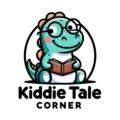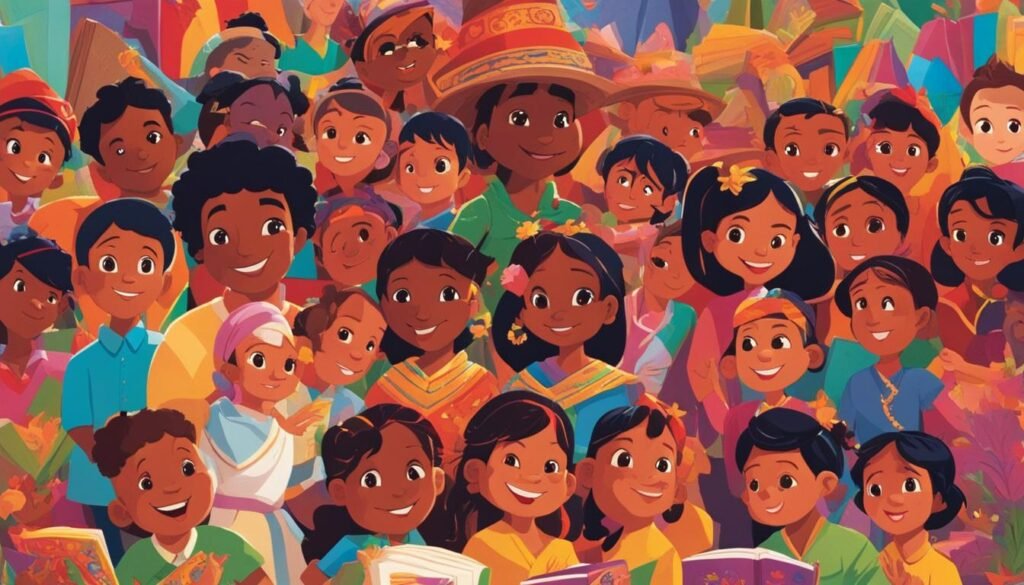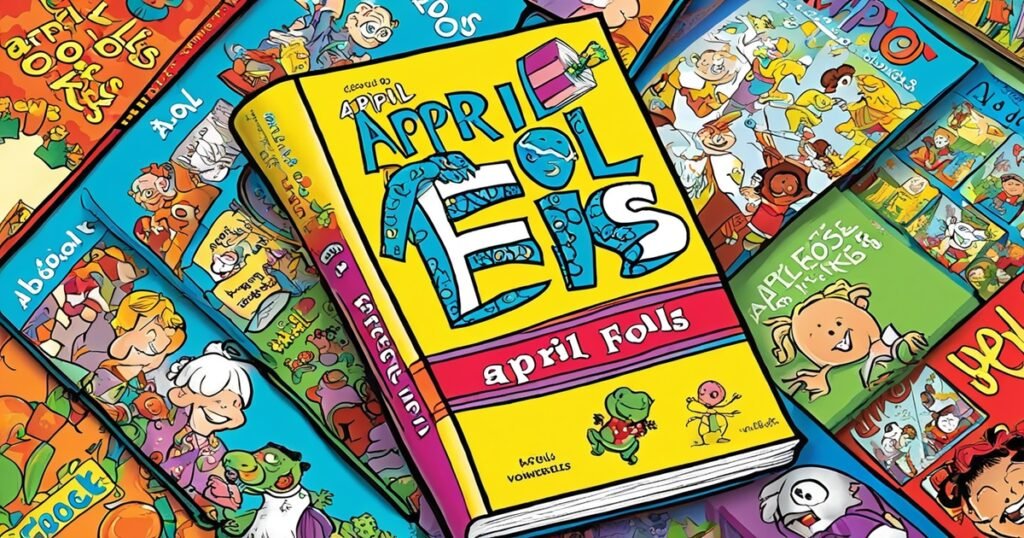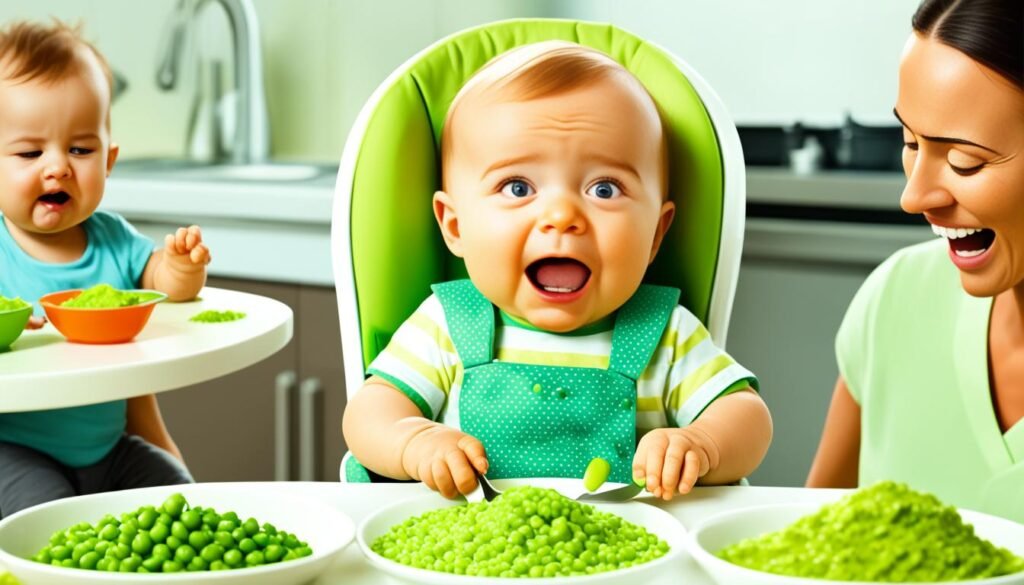Embarking on the journey of conscious parenting, where every story and every book becomes a cornerstone for tomorrow’s inclusive world, is both empowering and transformative. With a carefully curated selection of woke babies books, parents have the unique opportunity to weave a tapestry of diverse literature into their children’s lives. Embracing these vibrant narratives propels the powerful crusade for representation, crafting a childhood grounded in empowering stories that rise above the conventional.
Reflecting the beautiful spectrum of humanity, children’s books that focus on social justice light up young imaginations with characters from all walks of life. Through the pages of trailblazing works by thought leaders like Ibram X. Kendi, these stories prime young minds for a life steeped in equity and understanding. For parents who anchor their nurturing in conscious parenting, these books are not merely tales to be told at bedtime; they are the echo of a future where every child can see themselves as the hero of their own story.
Table of Contents
- Key Takeaways
- Embracing Diverse Literature for Young Minds
- The Role of Woke Babies Books in Fostering Social Justice
- Inclusive Stories: Why They Matter in Early Childhood Development
- Introducing Conscious Concepts: Baby and Toddler Edition
- Guiding Young Children Through Empathetic and Informed Reading
- Expanding Horizons: Woke Babies Books for Young Adults
- The Educational Value of Woke Babies Books in Homes and Schools
- How to Choose the Right Woke Babies Books for Your Family
- Creating a Supportive Environment for Conscious Parenting
- Source Links
Key Takeaways
- Deepen your understanding of conscious parenting with woke babies books.
- Discover the role of diverse literature in shaping young, inclusive minds.
- Incorporate empowering stories into your child’s reading collection.
- Learn how to foster empathy and social awareness through children’s books.
- Explore the lasting impact of representation in youth narratives.
Embracing Diverse Literature for Young Minds
The landscape of children’s literature is witnessing a transformative era where inclusive stories are not just additions but essentials in shaping a young reader’s perspective. As we delve into the realm of storybooks, picture books, and narratives that shape the early years, it becomes clear that representation goes beyond the pages—it echoes the diverse realities of our society.
Importance of Representation in Children’s Literature
The vibrant world of children’s literature is at its best when it reflects the kaleidoscope of characters and experiences found in the real world. Immersing young minds in literature that champions diverse characters nurtures empathy, cultivates open-mindedness, and encourages a global outlook. Striving for this depth of representation ensures that all young readers see themselves as heroes in their own stories and appreciate the narratives of those different from them.
Coretta Scott King Book Award Winners as Starting Points
Parents searching for a trusted path towards diverse literature will find a beacon in the Coretta Scott King Book Award winners. Notable for highlighting African American authors and illustrators, these awards cast the spotlight on books that exalt African American culture and universal human values. Such works not only tell stories—they spark movements within the minds of the young.
| Year | Title | Author/Illustrator |
|---|---|---|
| 2021 | Before the Ever After | Jacqueline Woodson |
| 2020 | New Kid | Jerry Craft |
| 2019 | A Few Red Drops: The Chicago Race Riot of 1919 | Claire Hartfield |
| 2018 | Piecing Me Together | Renee Watson |
Each award-winning story is a trowel in the foundation of a child’s consciousness, constructing a space where diversity is not just recognized but revered. As they turn the pages of woke babies books graced by such accolades, they connect with narratives of resilience and triumph, which reflect a collective tapestry of human experience. For those embarking on a literary journey with their young ones, Coretta Scott King Book Award winners serve as an enriching starting point for a lifelong commitment to inclusive reading.
The Role of Woke Babies Books in Fostering Social Justice
In a world where the fight for social justice is increasingly vital, woke babies books are emerging as pivotal instruments for instilling a sense of fairness and equality in young minds. Indeed, these aren’t your ordinary children’s books; they are a rebellion against the status quo, a testament to the power of conscious parenting, and a cornerstone for creating an inclusive future. By including narratives teeming with diverse literature, parents and educators alike can nurture a generation that is not only well-read but well-prepared to challenge injustices.
Consider, for instance, “A is for Activist” by Innosanto Nagara, which serves as an alphabetical primer to activism and social change. It’s an example of how books for the youngest of readers can become a gateway to understanding larger societal constructs. Meanwhile, Mahogany L. Browne’s “Woke: A Young Poet’s Call to Justice” uses poetry to address topics like race, gender, and emotional intelligence with a resonance that young readers can comprehend and appreciate.
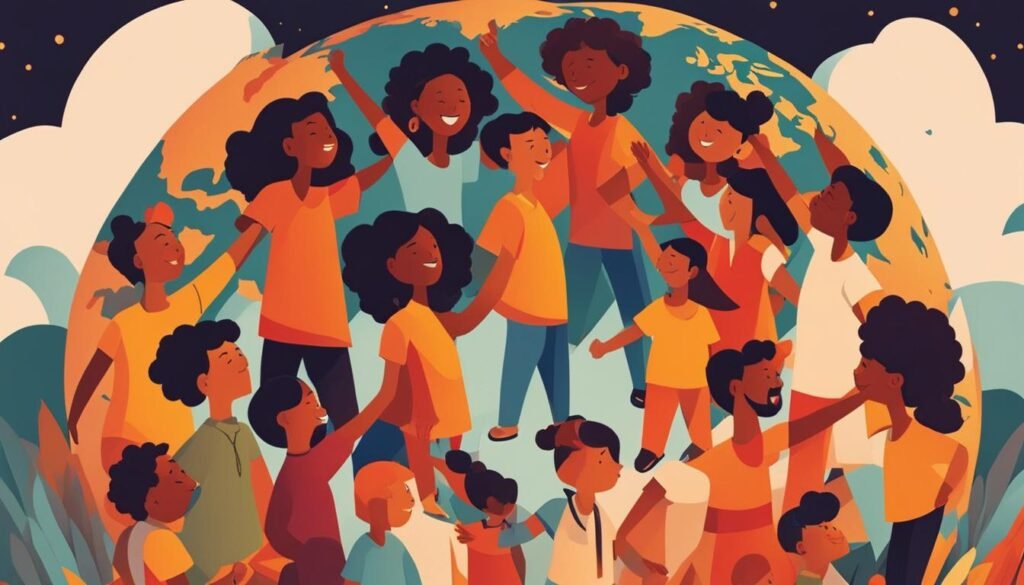
Below is a table that highlights some of the key aspects of woke babies books that contribute to the dialogue around social justice and illustrate the transformative impact such literature can have.
| Title | Author | Themes | Audience Engagement |
|---|---|---|---|
| A is for Activist | Innosanto Nagara | Activism, Leadership, Community | Introduces foundational concepts of social justice through the alphabet |
| Woke: A Young Poet’s Call to Justice | Mahogany L. Browne | Inequality, Empowerment, Identity | Encourages young readers to question and stand up against societal issues |
The legacy of such books is the planting of early seeds of activism in the fertile minds of children. Parents practicing conscious parenting will find allies in these publications, aiding them to engage in deep and meaningful conversations with their offspring. This is not just about telling stories; it’s about building the foundations upon which the monumental pursuit of equality will continue to stand firm for future generations.
As society evolves, the call for books that mirror the true spectrum of human experiences grows louder. Woke babies books respond to this call with vigor, proving that even the youngest of readers can grasp complex concepts when they are wrapped in compelling narratives. They stand at the intersection of education and inspiration, whispering to our youngest that they, too, can be advocates of change and torchbearers of justice.
Inclusive Stories: Why They Matter in Early Childhood Development
The fabric of society is rich and varied, and children’s literature must reflect this vibrant diversity. Inclusive stories play a fundamental role in early childhood development, serving not just as entertainment but as vital instruments for shaping perspectives and forming connections. These narratives extend beyond the pages of woke babies books to instill in young minds the principles of inclusivity and understanding.
Intertwining the lives and experiences of different cultures and communities, inclusive stories are a powerful tool against the divisive forces of ignorance and intolerance. When children see themselves and others represented in the stories they read, it paves the way for a future where differences are not just recognized but celebrated.
Intersectional Storytelling and Its Benefits
Intersectional storytelling is more than a literary trend; it’s an essential approach to education and growth. By incorporating characters and narratives that encompass a wide spectrum of backgrounds, identities, and experiences, intersectional storytelling fosters a world of understanding and empathy in children. The benefits of exposing young audiences to such inclusive stories during critical early childhood development phases are manifold.
- It cultivates empathy by introducing children to lives and situations different from their own.
- It breaks down stereotypes before they can take root in the minds of young readers.
- It promotes the acceptance of all people, encouraging children to value diversity.
EmbraceRace and its dedication to anti-racist activism plays an instrumental role in compiling lists of books that support these objectives. Their work aids in steering families towards content that does more than tell a story—it sparks a dialogue about race, identity, and solidarity.
EmbraceRace’s List for Anti-Racist Activism in Children’s Lifestyles
EmbraceRace curates selections of woke babies books that go beyond the superficial tiers of storytelling to delve into themes of race, justice, and activism. These carefully chosen books encourage young readers to ask questions, seek answers, and develop a sense of agency in their evolving world views.
Such books are not just stories; they are invitations for children to think critically about the world around them, to recognize the value of every individual’s narrative, and to contribute to a society where equity and compassion reign supreme.
For parents and educators aiming to equip their children with the knowledge and sensibility required for anti-racist activism, these resources, including EmbraceRace’s recommendations, are invaluable. They offer a gateway to understanding and lay down a path of lifelong learning and empathy.
Introducing Conscious Concepts: Baby and Toddler Edition
In the tender years of babyhood and early toddler stages, instilling values through empowering narratives can shape the fundamentals of a child’s perspective on the world. Woke babies books are not just bedtime stories but are powerful tools that sow the seeds of gender equality and diverse literature appreciation. By carefully selecting books for these youngest readers, we lay the first stone towards a future where diversity is not just seen but celebrated.
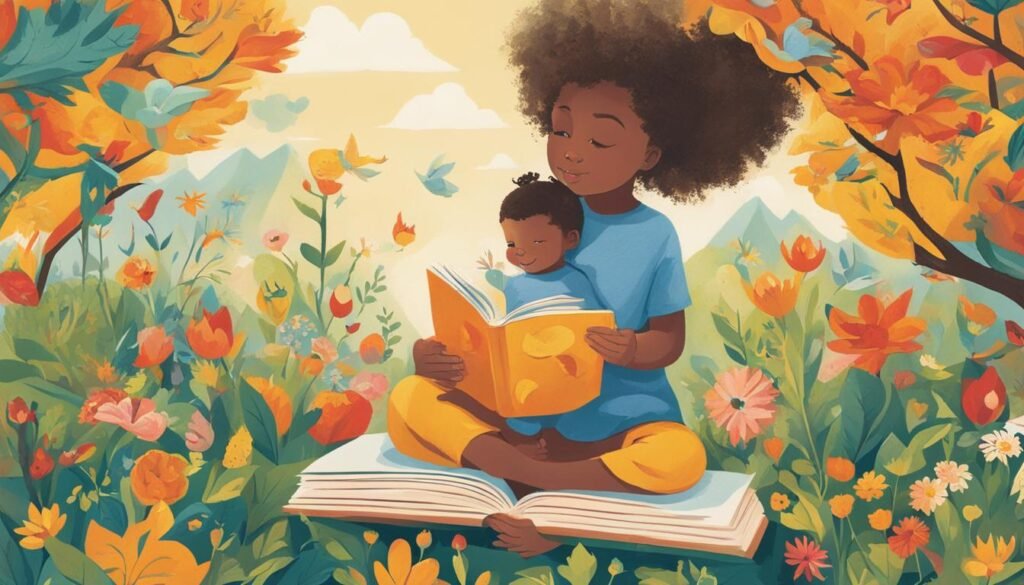
Selecting Empowering Narratives for the Youngest Readers
Choosing books that weave empowering narratives for youngest readers takes more than a casual glance at the cover. It requires a dive into the substance of the book, ensuring that the storyline promotes inclusivity and empowerment. Vera B. Williams’ “More More More,” Said the Baby captures this essence beautifully, with stories that celebrate familial love across different cultures.
Books That Challenge Gender Norms and Encourage Equality
“Sesame Street” has long been a bastion for creating accessible content that educates and uplifts. Bobbi Kates’ series “We’re Different, We’re the Same” stands as a testament to literature’s ability to influence understanding of gender equality from the earliest age. The stories marvel at the beauty of our differences while cementing the values of equality and acceptance—integral parts of the fabric of diverse literature.
Guiding Young Children Through Empathetic and Informed Reading
In an effort to promote empathetic reading and informed reading, parents and educators are turning to woke babies books as a cornerstone in guiding children. These books, rich with diverse characters and profound lessons, are pivotal in shaping the perspectives of our youth. With each turn of the page, children embark on journeys that illuminate the spectrum of human experience and encourage cognitive and emotional development.
Titles such as “Black is a Rainbow Color” by Angela Joy not only serve as reflections of individual identity and self-affirmation, but also as bridges connecting young readers to the broader, vibrant community to which they belong. Through literary exploration, children can grasp the meaning of empathy, seeing the world through the lens of others.
“IntersectionAllies: We Make Room for All” by Chelsea Johnson, LaToya Council, and Carolyn Choi is a testament to the potential of children’s literature in fostering an inclusive mindset from the earliest of ages.
Below is a table highlighting how these notable works contribute to guiding children on their path to understanding themselves and others around them.
| Book Title | Themes Explored | Impact on Empathy Development |
|---|---|---|
| “Black is a Rainbow Color” | Cultural Identity, Diversity, Beauty in Difference | Encourages recognition and appreciation of one’s own culture and the cultures of others. |
| “IntersectionAllies: We Make Room for All” | Inclusivity, Social Justice, Community | Instills the notion of allyship and community support, highlighting the intersectionality of human experiences. |
Through intentional selection of stories that mirror real-world diversity, parents and educators lay the groundwork for more thoughtful, woke, and compassionate future generations. They’re not just sharing stories; they’re fostering a new ethos of understanding and acceptance that will resonate throughout these young readers’ lives.
Expanding Horizons: Woke Babies Books for Young Adults
For young adults grappling with an evolving self-identity amidst societal upheaval, woke babies books emerge as a poignant resource, enriching their literary landscape with stories that directly mirror the multifaceted nature of current societal challenges. Diverse literature under this segment is not merely a reflection of reality but also a rallying cry for inspiring change. The narratives presented in these works propel readers towards a deeper understanding of the world and their individual power within it.
Literature That Reflects Today’s Societal Challenges
Books like “This is My America” by Kim Johnson epitomize the courage and resilience required to navigate an often unjust society, painting a vivid picture of the systemic inequalities that many young adults witness and endure. Likewise, “Punching the Air” by Ibi Zoboi and Yusef Salaam offers not just a character’s confrontation with racial and legal injustice but also signifies the potential for hope and empowerment through creative expression. Such woke babies books serve as lenses for young adults to critically examine and digest the intricate threads of justice and human dignity that intertwine in their own lives.
Young Adult Stories That Inspire Change and Understanding
Inspiration is the beacon that guides young adults towards constructive action, and literature provides a powerful source of that inspiration. “Stamped: Racism, Antiracism, and You” by Jason Reynolds and Ibram X. Kendi is a transformative text, sculpting young minds to understand and challenge the pervasive nature of racism. As young adults engage with these powerful words, they are enriched with the intellectual prowess to incite substantive change in themselves and their communities
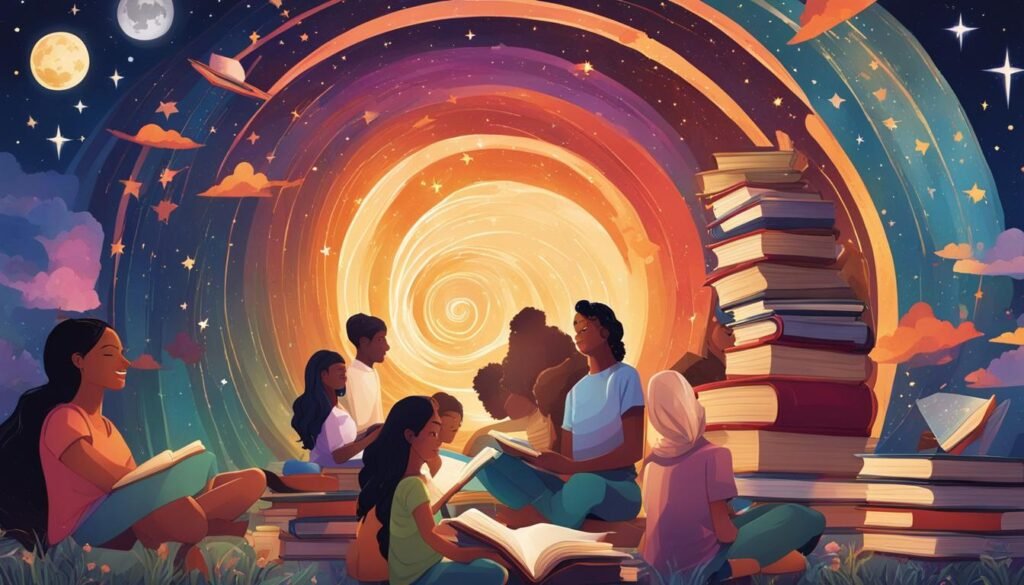
By immersing themselves in woke babies books, young adults are introduced to characters and narratives that resonate with their own experiences, and, more importantly, uplift their aspirations for the world they yearn to shape. It’s in this interaction between page and perception that young readers can find the catalyst for lasting change—inspiring them to step forward as the enlightened architects of tomorrow.
| Title | Author(s) | Themes | Impact on Young Adults |
|---|---|---|---|
| This is My America | Kim Johnson | Racial Injustice, Courage, Family | Encourages critical reflection on justice and personal responsibility |
| Punching the Air | Ibi Zoboi & Yusef Salaam | Racial Justice, Growth, Artistry | Emphasizes creativity as a form of resilience and resistance |
| Stamped: Racism, Antiracism, and You | Jason Reynolds & Ibram X. Kendi | Race, Self-Awareness, Activism | Builds critical thinking and advocacy skills |
The Educational Value of Woke Babies Books in Homes and Schools
As we delve into the role of woke babies books in educational settings, it is clear that their influence stretches well beyond the cozy reading nooks of family homes and into the vibrant and interactive classrooms of our schools. These books are not just tales to quiet a child before bedtime; they are springboards for thoughtful discussions that can shape a generation’s view of race, equality, and justice.
The Conscious Kid—Tools for Parents and Educators
One pivotal resource in this educational journey is The Conscious Kid. This organization offers parents and educators a wealth of tools designed to encourage critical literacy and to promote an understanding of social issues through a child’s lens. A membership with The Conscious Kid provides access to a curated library of books that can aid in developing racial identity and fostering conversations about equity within the learning environment.
Encouraging Critical Literacy and Thoughtful Discussions
Integrating woke babies books into the curriculum is more than just a modern trend; it is a necessity for cultivating critical literacy in young minds. Books such as “Let’s Talk About Race” by Julius Lester are exemplary for sparking thoughtful discussions and for encouraging students to engage with complex concepts in an age-appropriate manner.
Below is a table that illustrates how woke babies books can be seamlessly woven into both home and school environments to enhance their educational value:
| Family Reading Time | School Curriculum Integration |
|---|---|
| Co-reading sessions that involve discussing characters’ actions and their social implications. | Lesson plans that include books with diverse characters to reflect students’ own experiences and identities. |
| Utilizing story-related activities to reinforce the messages conveyed through the narratives. | Active learning techniques, such as role-playing or art projects inspired by the stories. |
| Discussions about personal feelings and perspectives on the stories read together. | Classroom discussions that foster critical analysis of the stories’ themes and their relevance to the world. |
Encompassing strategies from The Conscious Kid and woke babies books into the fabric of our children’s daily lives promotes an ongoing cycle of learning and discussion. It bridges the gap between the academic understanding and personal appreciation of the world’s diversity—a vital aspect of modern education. In essence, these books serve as tools, not only for reading but also for living and learning in a society that values critical literacy and inclusive dialogue.
How to Choose the Right Woke Babies Books for Your Family
Embracing inclusive parenting is a reflective journey, one where choosing the right books plays a pivotal role. Woke babies books are a cornerstone in this process, offering stories imbued with diversity and cultural richness. To select literature that aligns with conscious parenting, families must consider the child’s cognitive and emotional development, seeking narratives that encourage growth and understanding.

Finding the right balance between educational content and engaging storytelling can be challenging. However, turning to organizations like Harvard’s Anti-Racism Project and The Conscious Kid offers a reliable foundation. These sources prioritize books by diverse literature advocates and provide a seal of quality for parents striving to introduce nuanced discussions about race and identity at home.
| Age Group | Recommended Books | Core Themes |
|---|---|---|
| 0-2 Years | “Woke Baby” by Mahogany L. Browne | Empowerment, Activism |
| 3-5 Years | “A Kid’s Book About Racism” by Jelani Memory | Racial Identity, Inclusion |
| 6-8 Years | “Sulwe” by Lupita Nyong’o | Self-Acceptance, Beauty |
| 9-12 Years | “New Kid” by Jerry Craft | Belonging, Social Dynamics |
Parents looking to choose right books must consider not just a book’s themes, but also the resonance it may have within their family’s dynamic. Seeking out stories that address different racial and cultural identities prepares children for a world rich in diversity, while reinforcing the principles of conscious parenting. Additionally, introducing inclusive literature at various developmental stages ensures that as children grow, they continue to affirm the values of equity and inclusivity.
- Assess your child’s level of understanding and curiosity about social issues.
- Identify books with characters and stories that reflect your family’s values.
- Look for books that have won awards for their contributions to diverse literature.
- Consider books that lead to meaningful conversations and learning opportunities.
Ultimately, the books you choose are powerful tools shaping your child’s worldview. By selecting woke babies books that champion diversity, inclusion, and social justice, parents make strides towards a more empathetic and socially inclusive parenting experience.
Creating a Supportive Environment for Conscious Parenting
In tackling the pivotal role of conscious parenting, it is essential to establish a supportive environment that embraces woke babies books as a cornerstone for child development. Accessibility to a wide-ranging library of books featuring diverse characters and narratives fosters curiosity and understanding in young minds. It cultivates a familial atmosphere where open dialogue about social justice can prosper, setting the stage for a generation that is both informed and empathetic.
As we navigate the intricate process of nurturing socially aware children, the significance of integrating literature that mirrors real societal diversities cannot be overstated. Parents who actively engage with their children on perspectives introduced by woke babies books lay the groundwork for the rise of compassionate and insightful individuals. This approach is paramount for the promotion of social justice and the dismantling of biases, allowing for a familial culture that upholds the very tenets of equality and inclusivity it seeks to teach.
Ultimately, conscious parenting transcends the mere act of reading; it requires a commitment to reflection and ongoing conversation. By choosing books that build on themes of equity and justice, families can realize a welcoming home environment that not only celebrates cultural richness but also strengthens their collective moral compass. A commitment to such a nurturing approach provides children the tools to become advocates for a diverse and just society, inspired by the powerful stories included in their formative years.
FAQ
What are woke babies books and why are they important?
Woke babies books are a genre of children’s literature that focuses on presenting diverse characters, cultures, and social justice themes in stories appropriate for young readers. They are important because they foster an understanding and appreciation for diversity and inclusion from an early age, helping to develop empathetic and socially conscious individuals.
How do woke babies books contribute to conscious parenting?
By including stories with diverse characters and addressing social issues, woke babies books provide parents with the tools to engage in meaningful conversations with their children. These books can help explain complex societal themes in a way that is accessible to young readers, thus contributing to conscious parenting by enabling important discussions about inclusivity and equality.
Can you recommend some award-winning books that promote representation in children’s literature?
The Coretta Scott King Book Award winners are an excellent place to start looking for books that promote representation in children’s literature. Titles like “Black Brother, Black Brother” by Jewell Parker Rhodes are recognized for their contribution to presenting African American culture and universal human values.
Why is intersectional storytelling important in early childhood development?
Intersectional storytelling is important in early childhood development because it exposes children to a variety of experiences and perspectives that they may not encounter in their everyday lives. This approach promotes empathy, combats stereotypes and normalizes equity, all of which are essential for developing a rounded and inclusive worldview.
What organizations offer resources for anti-racist activism in children’s lifestyles?
Organizations like EmbraceRace curate lists of children’s books designed to facilitate conversations about race and resistance. They provide valuable resources for parents and educators striving to instill anti-racist principles through literature and storytelling.
How can woke babies books help challenge gender norms and encourage equality in young children?
Woke babies books like “We’re Different, We’re the Same” by Bobbi Kates from the “Sesame Street” series use familiar characters to teach young children about equality, diversity, and acceptance. By presenting narratives that contradict traditional gender norms, these books can play a pivotal role in establishing a foundation for understanding gender equality.
What is the value of woke babies books for young adults?
For young adults, woke babies books offer insights into complex societal challenges through storylines they can relate to, such as those in “This is My America” by Kim Johnson. They prompt reflection and engagement on topics like race and justice and encourage activism and understanding through characters that face similar issues to the readers.
How do organizations like The Conscious Kid support the use of woke babies books in educational settings?
The Conscious Kid is an organization that offers resources, including a required membership, to support racial identity development and equitable practices in both homes and classrooms. They provide book lists, teaching guides, and other tools that can be used to incorporate woke babies books into the curriculum to promote critical literacy and thoughtful discussions.
How should parents go about choosing the right woke babies books for their family?
Parents should reflect on their child’s developmental stage and the values they want to communicate when selecting woke babies books. Utilizing recommended lists from reputable sources like Harvard’s Anti-Racism Project and The Conscious Kid can help them find titles that resonate with the family’s goals and provide inclusive and informative narratives.
What strategies can parents use to create a supportive environment for conscious parenting?
Parents can create a supportive environment for conscious parenting by ensuring accessibility to diverse literature, engaging actively with the themes presented in woke babies books, and encouraging open conversations. A nurturing setting where children feel safe to ask questions and explore complex issues is key to promoting a household culture that values diversity and social consciousness.
